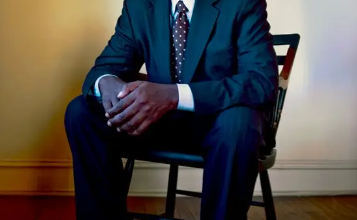Canadian industry minister denies Rogers-Shaw telecom merger

OTTAWA, Canada — Canada’s federal industry minister said Tuesday he would not approve a multi-billion-dollar merger between Rogers Communications Inc. and Shaw Communications, two of the country’s largest telecommunication companies.
Industry Minister Francois-Philippe Champagne did leave the door open to a revised agreement.
The US$19.1 billion (Cdn$26 billion) proposed merger would have meant the wholesale transfer of wireless spectrum licenses from Shaw to Rogers, which requires Champagne’s approval.
“Today, I officially denied that request,” Champagne said. “My decision formally closes that chapter of the original proposed transaction.”
Shaw’s ownership of Freedom Mobile has widely been seen as the main obstacle to the deal’s approval. Montreal-based Videotron earlier this year agreed to buy it for US$2.1 billion (Cdn$2.85 billion).
Champagne said he needed two specific concessions before he would approve the Videotron deal.
Videotron would have to agree to keep the Freedom wireless licenses for at least 10 years, he said.
“We don’t want someone to flip these licenses, we want them to be in it for the long term,” he said.
Secondly, Champagne said he would “expect to see″ wireless prices in Ontario and Western Canada lowered by about 20 per cent, putting them in line with Videotron’s current Quebec offerings.
Karl Peladeau, CEO of Quebecor Inc., which owns Videotron, said he intends to accept Champagne’s conditions.
In a statement, Peladeau said Quebecor agrees to incorporate the industry minister’s stipulations in a new version of the transaction, paving the way for Freedom’s sale to go through.
Champagne did not make clear whether a successful sale of Freedom Mobile would mean the Rogers-Shaw deal might still be approved.
As well as Champagne’s approval, the Rogers-Shaw deal requires a green light from the Competition Commissioner and the Canadian Radio-television and Telecommunications Commission (CRTC)
The CRTC offered its conditional approval for the broadcasting portion of the deal in March.
Source link





